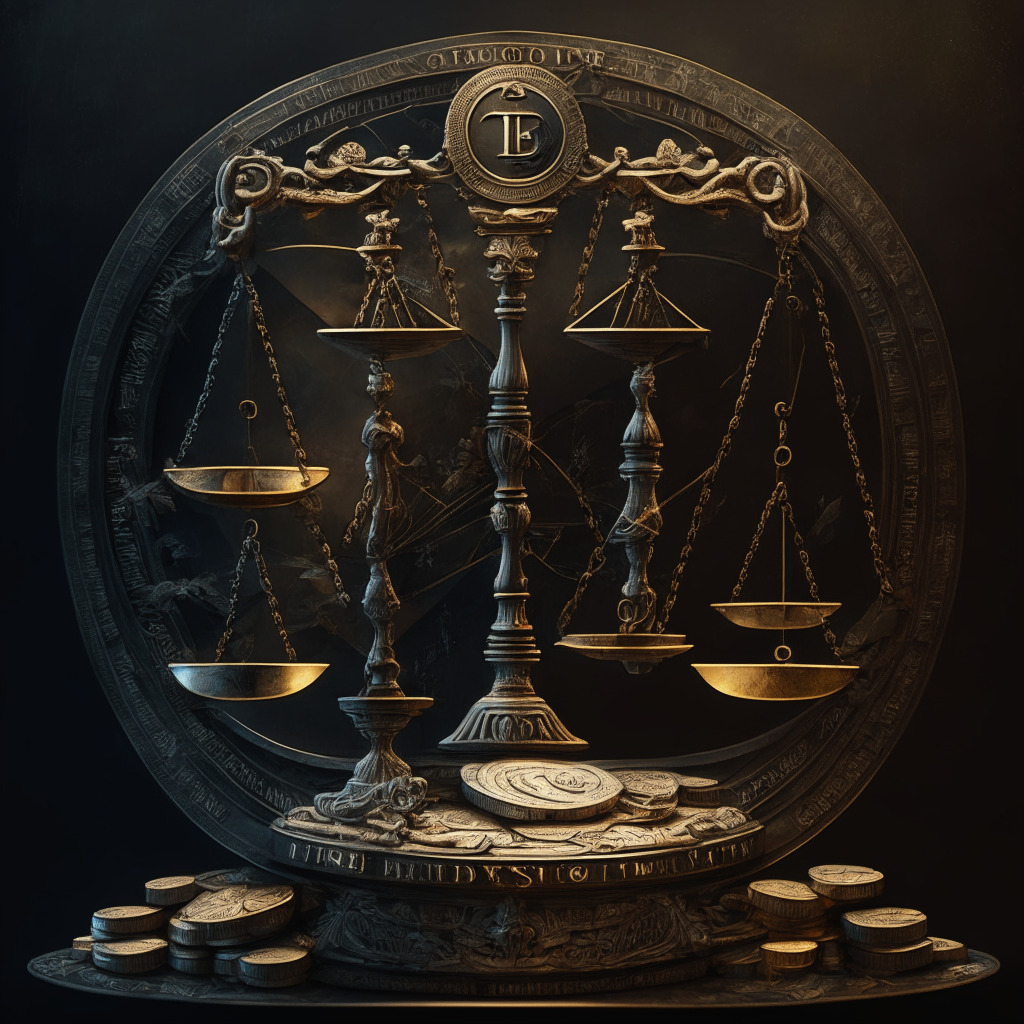Despite facing heavy criticism for mishandling the enforcement on the crypto market, the U.S. Securities and Exchange Commission (SEC) continues to be a focal point for controversies related to the space. Ripple’s Chief Legal Officer, Stuart Alderoty, argues that the issue doesn’t lie with the crypto ecosystem; instead, he views it as a constitutional problem.
The tense relationship between the SEC and the crypto industry has escalated since the beginning of 2023 as the regulatory body ramped up its forced enforcement actions. It is essential to note that the XRP token holder community, loyal amid the legal battle between Ripple and the SEC, now awaits a summary judgment from Judge Analisa Torres, who is overseeing the case.
Alderoty’s comments on the situation mostly stem from the SEC’s legal battle with Ripple, wherein he criticized the agency’s usage of the judicial process as a “weapon to be wielded.” He went on to emphasize that this is not a crypto issue; rather, it’s a “We The People” problem, pointing to the preamble of the United States Constitution.
As a result, Alderoty suggests that new laws governing the SEC’s crypto oversight should be introduced to address this problem. Recently, the US House Republican committee, led by Chairman Patrick McHenry of the US House Committee on Financial Services, has expressed concerns that current laws don’t align with the underlying technology nor are they applicable to the rapidly evolving space.
The crux of this issue seems to lie in the balance between effective regulation and allowing blockchain innovation to flourish. While there is undoubtedly a need for oversight to protect investors and weed out malicious behavior in the market, heavy-handed enforcement actions could potentially stifle growth and deter innovative projects from entering the space.
Ultimately, finding a solution requires ongoing conversations and debates involving key industry stakeholders, legal experts, and regulators themselves. Proponents of the blockchain space must understand the need for appropriate regulation, while policymakers should be cautious not to smother innovation in its infancy with overly restrictive rules.
In conclusion, striking the right balance between regulation and fostering innovation in the blockchain and cryptocurrency landscape remains a hotly contested subject. The situation only becomes more complex when considering the constitutional implications of some enforcement actions, as referenced by Alderoty. Moving forward, there is no simple answer to this dilemma. Still, open dialogues and collaboration between regulators, industry members, and legal professionals are essential steps in establishing an effective and fair regulatory framework.
Source: Coingape




